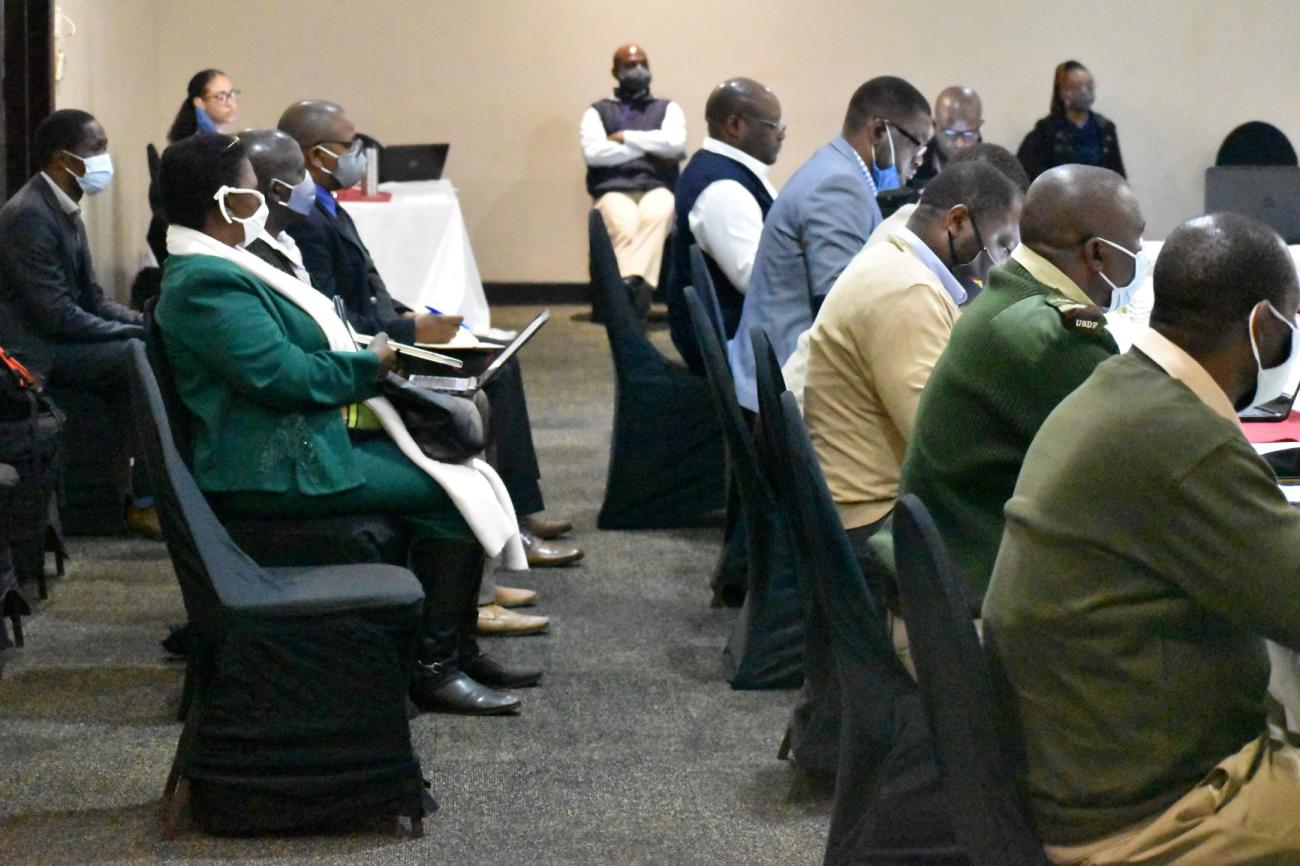On Thursday, 2nd July 2020, the UN, in collaboration with the National Disaster Management Agency (NDMA), gathered in solidarity with humanitarian partners for a workshop to review the COVID-19 National Emergency Response and Recovery Plan.
This workshop was the sixth Humanitarian Partners Meeting to take place since April at Happy Valley Hotel, Ezulwini, in an effort to develop a collective, integrated and coherent Humanitarian Response to COVID-19 in Eswatini.
During the workshop, partners shared updates and projections for the response, and worked together in relevant groups to revise the Plan and formulate sector-specific Implementation Plans and cost estimation.
Much progress has been made in the meetings so far as sectors have shared valuable information, come to understand the gaps, challenges and opportunities for joint programming and delivery of the Response Plan. The 4Ws Matrix has assisted partners to map out partners, programmes and resources in the national response to COVID-19.
COVID-19 is new to the world and thus, countries are continuously having to adapt their strategies to tackle the unprecedented pandemic. This workshop to review the COVID-19 Emergency Response Plan was therefore initiated to ensure that gaps in the response are filled; as the country prepares to move from an emergency response mode to a short-to-medium term recovery phase.
The UN Resident Coordinator, Ms Nathalie Ndongo-Seh, stated: “As the country prepares to emerge from its State of Emergency and adapt to the global ‘new normal’ with COVID-19 still at our doors, with more sectors of the economy re-opening, it is critical that we scale up our efforts to ensure that the Kingdom recovers from this pandemic, to position itself on the road to a more equitable and inclusive nation driven by compassion, solidarity and dignity for all.”
The UN Secretary-General, Mr António Guterres, called upon the world to ensure that countries do not return to where they were before COVID-19 struck.
“Indeed, recovery is an opportunity to address inequality, gaps in social protection systems, the climate crisis and the many other fragilities that have been exposed. Issues of sustainable food systems, gender equality, stronger social safety nets, universal health coverage and an international system that can deliver will need to be addressed,”
“The recovery must lead to building more inclusive and sustainable societies that are more resilient in the face of pandemics, climate change and other global challenges,” stated the UN Resident Coordinator.
The United Nations is committed to achieving Agenda 2030 and the Sustainable Development Goals. In order to achieve the SDGs by 2030, the world has entered a Decade of Action. Thus, it is critical that Member States remain focussed on their common goal to emerge from the COVID-19 pandemic in pursuit of achieving Agenda 2030.
















